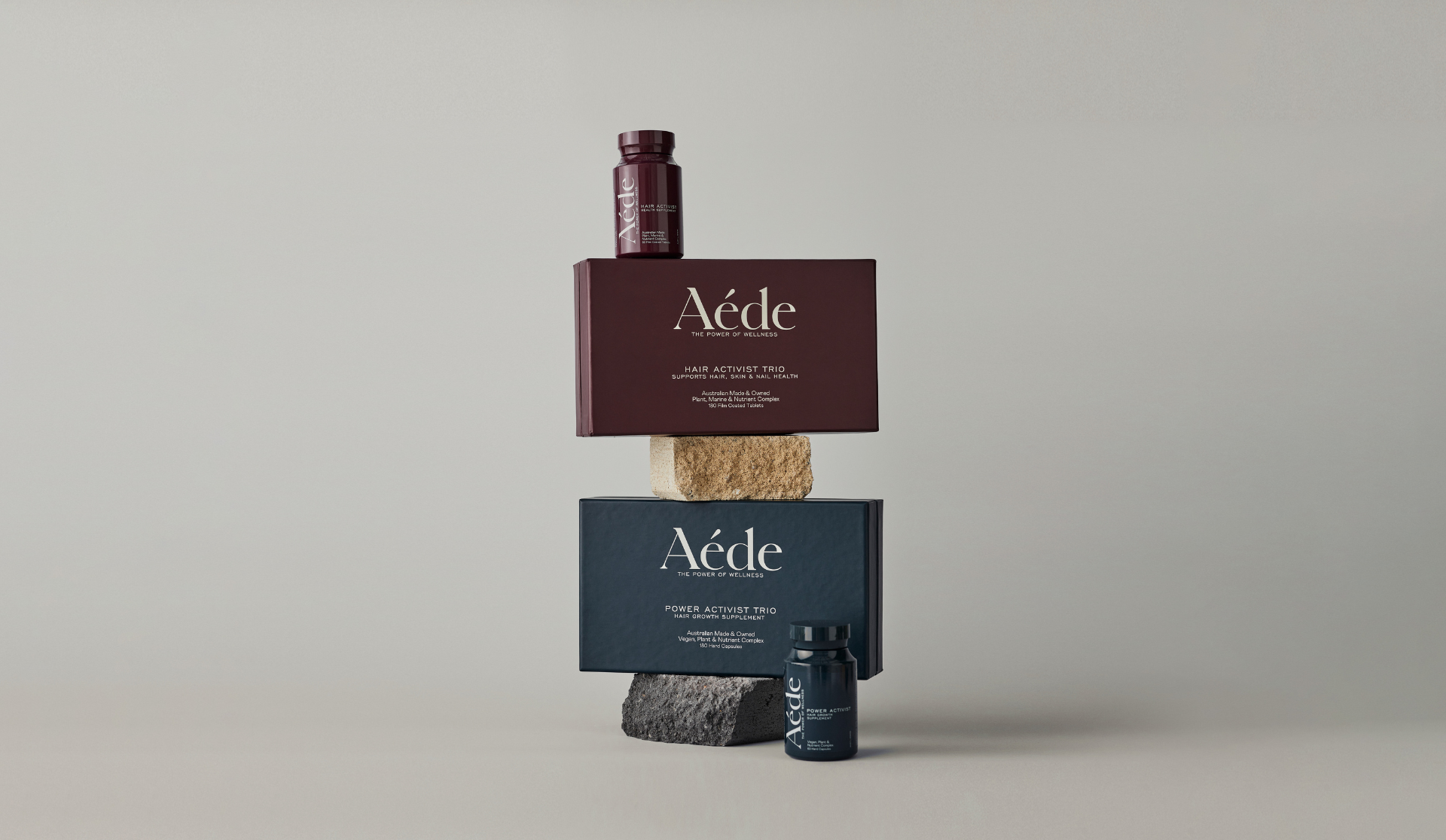Feel like you're caught in a cycle of unfortunate hair days? Perhaps it's worth checking if the culprit is closer than you think.
We are what we eat as the adage goes and when we think of our daily food intake, and how this impacts us on a daily basis, we’re generally focused on what is going to make the rig thin, rarely do we think about the impact of our hair thinning.
For the love of our mane, it is essential to have a diet that is rich in macronutrients - these consist of carbohydrates, protein, and healthy fats. Think of these as your MVP’s and should be included at every meal. Fibre is also a part of this A-lister crowd but its name just didn’t make it onto the prominent guest list.
Your micronutrients on the other hand are the vitamins and minerals that are complementary and imperative, which are needed to make your world go round and is also what makes Aéde’s world go round.
There are a plethora of weight loss programs that are on offer nowadays as well as veganism and vegetarianism entering the chat wholeheartedly, with all of this choice, it has made it increasingly harder for some to identify where they may be lacking in nutrients and conjuring up deficiency.
Research suggests that crash diets, extreme weight loss programs, or diets lacking in sufficient protein can contribute to hair loss. This may seem like a wild concept but nutrient gaps place unwanted stress on the body, which also impacts your metabolism and contributes to hair thinning.
What is a must for the beauty trifecta - hair, skin and nails?
PROTEIN
First and foremost, protein, this bad boy is composed of amino acids, which are vital for hair health, serving as building blocks for protein like keratin. They enhance structural integrity, promote growth, and support blood circulation to the scalp, ensuring optimal conditions for healthy, resilient hair. Protein malnutrition results in hair changes that include hair thinning and hair loss. Sources such as salmon, oysters, and nuts and seeds, all of which double up as a healthy fat, are a miracle worker for the beauty trifecta. Let it be known, incorporating protein at every meal will help you reach satiety and therefore you are less likely to hop on the dessert train.
ANTIOXIDANTS
Antioxidants are compounds that are able to neutralise reactive oxygen species (ROS), preventing oxidative damage. Many substances can be classified as antioxidants, including zinc, selenium, and vitamins A and E as well as vitamin C, beta-carotene and polyphenols. Oxidative stress has been linked to hair loss so it is important to include this posse in your diet. Think fresh fruits such as berries (ALL of them), cherries, papaya, watermelon, mango, watermelon, and acai. These antioxidants will increase blood circulation and nutrients to the scalp, which will encourage hair growth.
IRON
Research suggests that the most common nutritional deficiency in the world is an iron deficiency and is an indicator in hair loss studies. Vegans and vegetarians fall victim to this deficiency more often than not. When your body lacks sufficient iron, it hinders the production of haemoglobin in your bloodstream. Haemoglobin plays a crucial role in carrying oxygen, which is essential for cell growth and repair throughout your body, including the cells responsible for stimulating hair growth.
Baby spinach would be your hero in this instance as it is packed full of iron and is also rich in vitamin C and E - Popeye kind of stuff. Anything touted as green (your dark leafy greens) as well as dark chocolate (yas) will help push those iron levels up, and of course, for the red meat lovers, getting stuck into a cow will raise the roof on any dire iron levels.
HEALTHY FATS
Healthy fats contribute to shiny, lustrous hair by nourishing the scalp and hair follicles. They help to maintain the natural oils produced by the scalp, preventing dryness and brittleness. They also help to maintain the skin's moisture barrier, preventing dryness and promoting softness and elasticity. This also rings true for your hair as this keeps it hydrated and less prone to breakage.
Omega-3 fatty acids, found in fatty fish like salmon, flaxseeds, avocado and walnuts, have anti-inflammatory properties. Inflammation contributes to skin conditions such as acne and eczema, as well as hair and nail problems. Consuming omega-3s on the reg will help reduce inflammation and promote healthier skin, hair, and nails.
The vitamins that elevate your beauty trifecta - A, D, E, and K are fat soluble so consuming your healthy fats with this crowd will enhance their absorption, ensuring they can effectively nourish and trigger growth.


